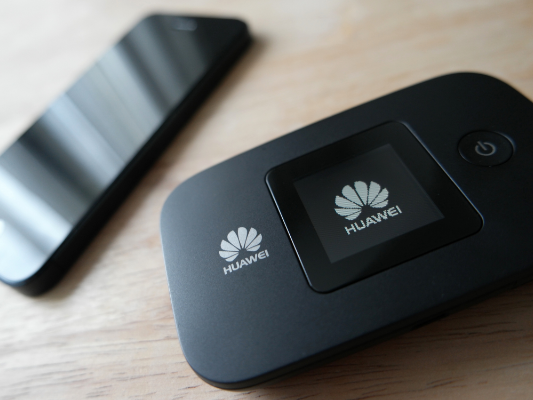The arrest of a senior executive at telecom equipment supplier Huawei Technologies will likely give rise to more security concerns in other countries closely allied with the U.S.and jeopardize the company’s future revenue streams.
Huawei’s chief financial officer,Meng Wanzhou,who is also the daughter of the company’s founder,Ren Zhengfei,was detained in Vancouver and faces possible extradition to the U.S.While the charges against Meng haven’t been specified,reports suggest that they’re related to violations of U.S.sanctions on Iran.Huawei said it has been provided“little information regarding the charges and is not aware of any wrongdoing by Ms.Meng.”
But analysts say Meng’s detention raises longer-term complications for the Chinese tech giant.“This can have a chain effect and influence more countries’procurement choices,”says Gu Wenjun,founder of Shanghai-based research firm ICwise.“The U.S.is likely to take the chance to ask its allies to stop using Huawei’s gear.”
The arrest has already heightened trade tensions between the U.S.and China,with Beijing demanding the immediate release of Meng.A Chinese foreign ministry spokesman said on Thursday that China had called on the U.S.and Canada to immediately clarify the reasons for the detention.
The latest flare-up comes after the Trump administration had already increased restrictions on Chinese investments and slapped tariffs on$250 billion worth of Chinese goods.U.S.authorities say the actions are in response to long-ignored complaints over Chinese regulations that force American companies to hand over technology and trade secrets if they wish to do business there.
China’s ambition to become a world leader in the high-tech industries is viewed in the U.S.as a threat to national security,and Huawei has been the focus of those concerns,with the company being repeatedly accused of installing back doors or listening devices in its equipment.The company has repeatedly denied those claims and said it complies with local laws in all of its global operations,but it is still barred from government contracts in the U.S.and other countries.
This year,the governments of Australia and New Zealand have already followed the U.S.in blocking Huawei from building 5G networks in their countries over national security concerns.And shortly before Meng’s arrest,Britain’s BT Group said it would remove Huawei from the core of its existing 3G and 4G mobile networks and wouldn’t consider the company for central parts of the next network.Meanwhile,Japan is also reportedly banning government purchases of Huawei and ZTE products due to concerns of potential leaks and cyberattacks.
“We believe it is unreasonable of the U.S.government to use these sorts of approaches to exert pressure on a business entity,”Huawei said in a letter to its suppliers dated December 6,2018.“They are against the spirit of free economy and fair competition.Nevertheless,regardless of how unreasonable their approach becomes,the partnerships we have with our global suppliers will stay unchanged.”
Edison Lee,a Hong Kong-based analyst at Jefferies,warns that the company could be hit with penalties similar to its crosstown rival ZTE Corp.The Hong Kong-listed company was banned in April from doing business with American suppliers for violating sanctions on Iran--a punishment that pushed it to the brink of collapse due to its dependence on U.S.-made components for its phones and equipment.In June,ZTE paid a$1.4 billion fine and agreed to overhaul its senior management to have the ban lifted.If U.S.authorities find Huawei has been involved in shipping prohibited goods to Iran,it will“likely immediately impose an export ban,”Lee wrote in a recent research note.
“We believe the consequence of a U.S.export ban on Huawei will be similar to that on ZTE--suspension of business,”he wrote,explaining that Huawei,like ZTE,uses key American technology--such as Google software and Qualcomm’s patents--in its phones and telecom stations.
Huawei has been investing heavily in developing 5G technology,which promises much faster Internet speeds and is expected to be publicly available starting next year.An unfavorable outcome from Huawei’s current legal entanglement could jeopardize some of its efforts to sell 5G networks to various carriers and governments,a key future growth driver for a company that generated$92.5 billion in 2017 total sales.
Negotiations for Meng’s release is likely to be a key part of the ongoing trade talks,and Beijing may offer some concessions,analysts say.Meanwhile,many countries are still open for business to Huawei,with the company signing on Wednesday a memorandum of understanding to develop 5G services with Portuguese carrier Altice Portugal.
“I don’t think every country would listen to the U.S.,”says Gu.“But let’s hope that there isn’t a sales ban.If there is,then this would escalate into a war in the telecom industry.In that case,China wouldn’t go without a fight.”





